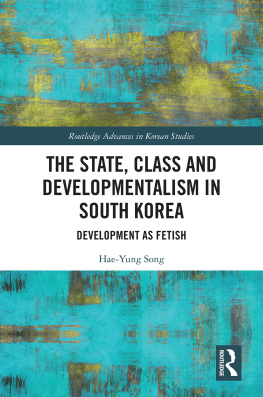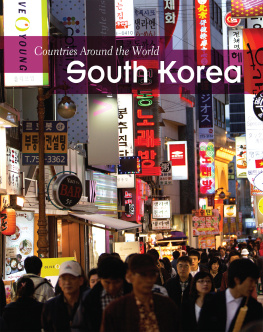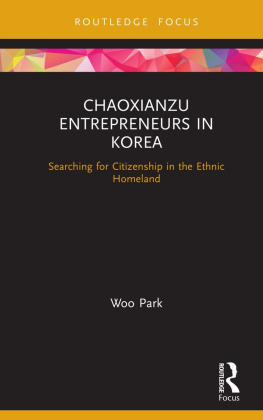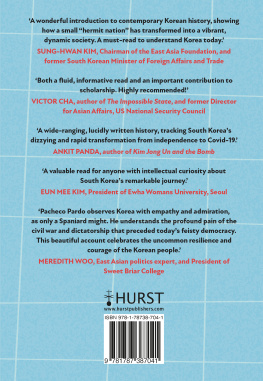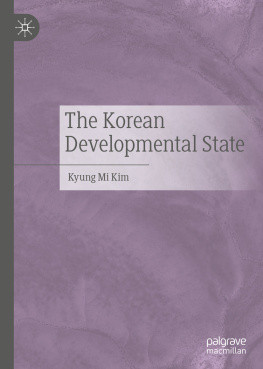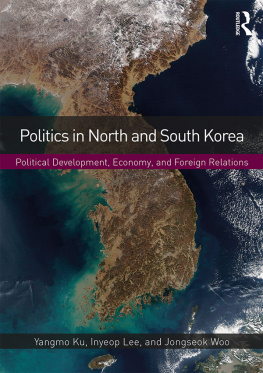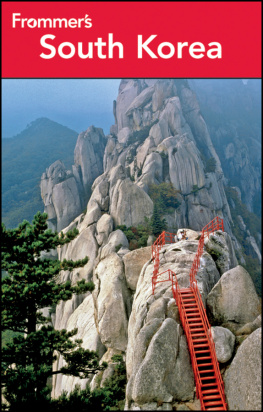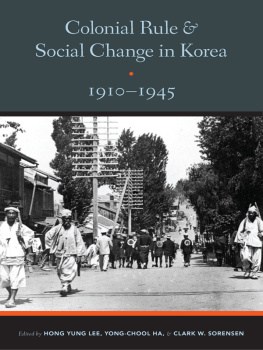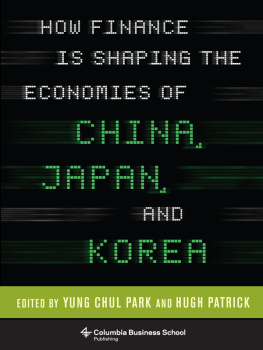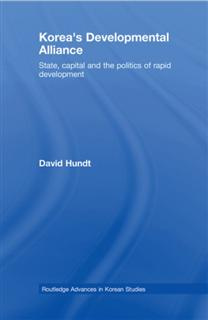The State, Class and Developmentalism in South Korea
This book problematises the statist underpinnings of the concept of the developmental state in terms of both statesociety and nationalglobal relations, challenging the notion that the state is the agent of national development qua being autonomous from the domestic and global economies.
Presenting a thorough and comprehensive critical assessment of the extant approaches and theories of the Korean developmental state in particular, this book demonstrates that the existing literature, including Marxist critiques, only inadequately and partially challenges statism. It examines how statism reinforces and is reinforced by Third World Developmentalism, the idea that development is in itself a positive goal and that a nationally autonomous mode of development should be promoted as a means of empowerment. In opposition, this book offers a critique of statism by constructing an alternative theoretical framework, extending Marxs concept of commodity fetishism to statesociety and nationalglobal relations.
Drawing on a new theoretical framework and significant Korean literature, The State, Class and Developmentalism in South Korea offers a novel historical interpretation and critique of the developmental state in the Korean context. As such, it will be useful to students and scholars of Asian studies, Development Studies and International Political Economy.
Hae-Yung Song works on political theory, development theory and the political economy of South Korea. She has taught at Warwick University and worked for the South Korean government in the areas of international relations and diplomacy. She currently teaches at Graduate School of International Studies, Korea University, Seoul, South Korea.
Routledge Advances in Korean Studies
38Strategic, Policy and Social Innovation for a Post-Industrial Korea
Beyond the Miracle
Joon Nak Choi, Yong Suk Lee and Gi-Wook Shin
39North Koreas Foreign Policy
The DPRK Part on the International Scene and Its Audiences
Lenka Caisova
40Public Management in Korea
Performance Evaluation and Public Institutions
Edited by Soonae Park
41Megacity Seoul
Urbanization and the Development of Modern South Korea
Yu-Min Joo
42Korean Adoptees and Transnational Adoption
Embodiment and Emotion
Jessica Walton
43Digital Development in Korea, Second Edition
Lessons for a Sustainable World
Myung Oh and James F. Larson
44The State, Class and Developmentalism in South Korea
Development as Fetish
Hae-Yung Song
For more information about this series, please visit: www.routledge.com/asianstudies/series/SE0505
The State, Class and Developmentalism in South Korea
Development as Fetish
Hae-Yung Song
First published 2020
by Routledge
2 Park Square, Milton Park, Abingdon, Oxon OX14 4RN
and by Routledge
52 Vanderbilt Avenue, New York, NY 10017
Routledge is an imprint of the Taylor & Francis Group, an informa business
2020 Hae-Yung Song
The right of Hae-Yung Song to be identified as author of this work has been asserted by her in accordance with sections 77 and 78 of the Copyright, Designs and Patents Act 1988.
All rights reserved. No part of this book may be reprinted or reproduced or utilised in any form or by any electronic, mechanical, or other means, now known or hereafter invented, including photocopying and recording, or in any information storage or retrieval system, without permission in writing from the publishers.
Trademark notice: Product or corporate names may be trademarks or registered trademarks, and are used only for identification and explanation without intent to infringe.
British Library Cataloguing-in-Publication Data
A catalogue record for this book is available from the British Library
Library of Congress Cataloging-in-Publication Data
Names: Song, Hae-Yung, author.
Title: The state, class and developmentalism in South Korea : development as fetish / Hae-Yung Song.
Identifiers: LCCN 2019028094 (print) | LCCN 2019028095 (ebook) | ISBN 9780367354725 (hardback) | ISBN 9780429342066 (ebook) | ISBN 9781000725636 (adobe pdf) | ISBN 9781000725773 (epub) | ISBN 9781000725704 (mobi)
Subjects: LCSH: Economic developmentPolitical aspectsKorea (South) | Korea (South)Politics and government21st century. | GlobalizationPolitical aspectsKorea (South) | CapitalismPolitical aspectsKorea (South)
Classification: LCC HC467.965 .S645 2020 (print) | LCC HC467.965 (ebook) | DDC 338.95195dc23
LC record available at https://lccn.loc.gov/2019028094
LC ebook record available at https://lccn.loc.gov/2019028095
ISBN: 978-0-367-35472-5 (hbk)
ISBN: 978-0-429-34206-6 (ebk)
Typeset in Times New Roman
by codeMantra
I would like to thank my mother, In-Sook Lee, my partner Marcel Stoetzler and Ms. Barbara Fletchman-Smith for taking my book project as importantly as their own work and offering me invaluable support. I hope this book positively contributes to a new way of thinking about and acting on development.
a ruler full of the spirit of improvement is warranted in the use of any expedients that will attain an end, perhaps otherwise unattainable. Despotism is a legitimate mode of movement in dealing with barbarians, provided the end be their improvement and the means justified by actually effecting that end.
(John Stuart Mill, On Liberty, )
This book provides a critique of the concept of the developmental state as well as a critique of the extant critiques of the developmental state, with the primary focus being on South Korea (hereafter Korea). Literature on the developmental state has been growing since Chalmers Johnson first coined the term in 1982 with reference to the Japanese state in his book MITI and the Japanese Miracle, and there has been no shortage of critiques. Entering an area of study that had been heavily documented and researched, I will briefly set out in this introduction what motivated me to write this book and what contributions I hope to make to this much-vaunted-field of research.
While it is debatable whether the concept of the developmental state and the tenets around it constitute a theory, they have clearly dominated the discussions of post-Second World War East Asian industrialisation, widely considered to be the poster child for successful Third World development. Intensive debates have taken place over how and why Korea (and other East Asian economies) industrialised successfully and thereby moved away from the world-economic periphery when many other postcolonial countries did not, and how and to what extent the existence of a development-oriented state, namely the developmental state, has contributed to this success.
To the extent that the concept of the developmental state was devised to explain what is seen as successful development, it is grounded, from its inception, on what I call Third World developmentalism, the taken-for-granted idea that development itself is something to be desired and applauded. As discussed in Part I, most debates on the developmental state have been on who and what deserved most credit for the success of East Asian industrialisation. In spite of otherwise opposed perspectives, all sides tended to share the presupposition that


